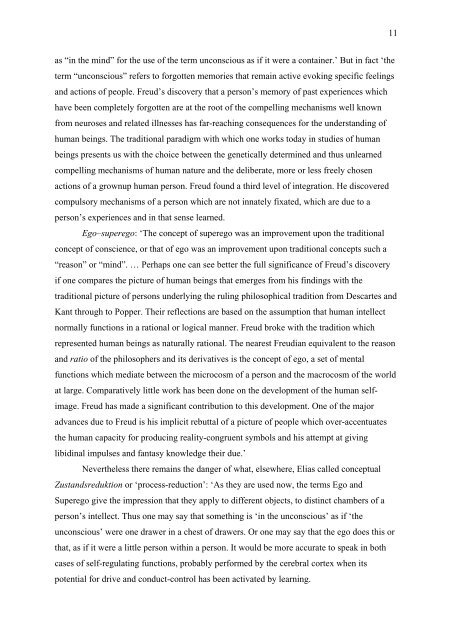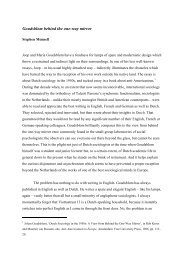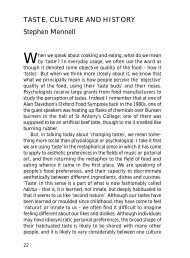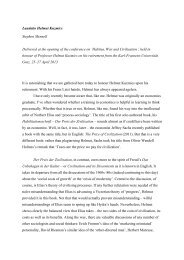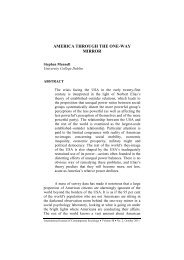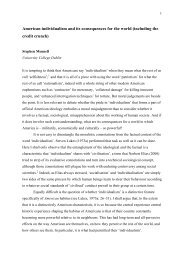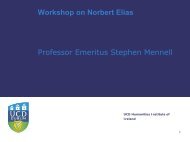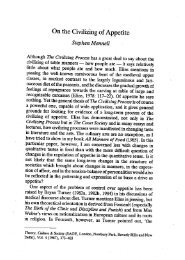paper - Stephen Mennell
paper - Stephen Mennell
paper - Stephen Mennell
You also want an ePaper? Increase the reach of your titles
YUMPU automatically turns print PDFs into web optimized ePapers that Google loves.
11<br />
as “in the mind” for the use of the term unconscious as if it were a container.’ But in fact ‘the<br />
term “unconscious” refers to forgotten memories that remain active evoking specific feelings<br />
and actions of people. Freud’s discovery that a person’s memory of past experiences which<br />
have been completely forgotten are at the root of the compelling mechanisms well known<br />
from neuroses and related illnesses has far-reaching consequences for the understanding of<br />
human beings. The traditional paradigm with which one works today in studies of human<br />
beings presents us with the choice between the genetically determined and thus unlearned<br />
compelling mechanisms of human nature and the deliberate, more or less freely chosen<br />
actions of a grownup human person. Freud found a third level of integration. He discovered<br />
compulsory mechanisms of a person which are not innately fixated, which are due to a<br />
person’s experiences and in that sense learned.<br />
Ego–superego: ‘The concept of superego was an improvement upon the traditional<br />
concept of conscience, or that of ego was an improvement upon traditional concepts such a<br />
“reason” or “mind”. … Perhaps one can see better the full significance of Freud’s discovery<br />
if one compares the picture of human beings that emerges from his findings with the<br />
traditional picture of persons underlying the ruling philosophical tradition from Descartes and<br />
Kant through to Popper. Their reflections are based on the assumption that human intellect<br />
normally functions in a rational or logical manner. Freud broke with the tradition which<br />
represented human beings as naturally rational. The nearest Freudian equivalent to the reason<br />
and ratio of the philosophers and its derivatives is the concept of ego, a set of mental<br />
functions which mediate between the microcosm of a person and the macrocosm of the world<br />
at large. Comparatively little work has been done on the development of the human selfimage.<br />
Freud has made a significant contribution to this development. One of the major<br />
advances due to Freud is his implicit rebuttal of a picture of people which over-accentuates<br />
the human capacity for producing reality-congruent symbols and his attempt at giving<br />
libidinal impulses and fantasy knowledge their due.’<br />
Nevertheless there remains the danger of what, elsewhere, Elias called conceptual<br />
Zustandsreduktion or ‘process-reduction’: ‘As they are used now, the terms Ego and<br />
Superego give the impression that they apply to different objects, to distinct chambers of a<br />
person’s intellect. Thus one may say that something is ‘in the unconscious’ as if ‘the<br />
unconscious’ were one drawer in a chest of drawers. Or one may say that the ego does this or<br />
that, as if it were a little person within a person. It would be more accurate to speak in both<br />
cases of self-regulating functions, probably performed by the cerebral cortex when its<br />
potential for drive and conduct-control has been activated by learning.


